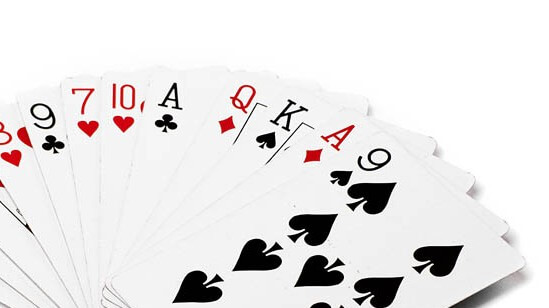In the 1970s there were a few Gin Rummy players who found out the odds in the game. Though some of the numbers are big, making it difficult to use them during a game, there are other odds that players can use. With these you can get an idea of the hands you may get in a game.
For example, in a game of Gin Rummy which has ten cards per hand, you can get 15,820,024,220 combinations. This increases when the player (who does not take the role of the dealer) is dealt an eleven card hand. He can get a hand with one of 60,403,728,840 combinations. After the round where cards are dealt, the combinations for both hands - that of the player and dealer - will be contingent on the cards remaining in a deck of 41. Each player can get dealt a hand from 1,471,442,973 combinations. This increases by several times when the cards are dealt.
Probability and odds of specific sets
Here are the probabilities and odds you will be able to use on specific sequences and sets:
-Â Â Â Â Â Â Â Zero sequences and one set, or one sequence and zero sets, are 0.047, and 20:1 against.
-Â Â Â Â Â Â Â One sequence and one set are 0.091, and 10:1 against.
-Â Â Â Â Â Â Â Two sequences and zero sets are 0.084, and 11:1 against.
-Â Â Â Â Â Â Â Two sequences and one set are 0.129, and 7:1 against.
-Â Â Â Â Â Â Â Three sequences and zero sets are 0.124, and 7:1 against.
-Â Â Â Â Â Â Â One sequence and three sets are 0.171, and 5:1 against.
-Â Â Â Â Â Â Â Two sequences and three sets are 0.194, and 4:1 against.
-Â Â Â Â Â Â Â Three sequences and three sets are 0.212, and 3.5:1 against.
Odds and probabilities of melds and runs
Using the odds of each type of game in Gin Rummy can be a difficult task as they are big numbers. If a player has to use the odds in every game, it will most likely take a lot of time and break the flow of a game. Though using the odds of being dealt a combination can be difficult, there are other probabilities you can work with. For instance, the probability of a dealer getting a 3-card meld when he is dealt the first ten cards is 2:5. However, the probability of the player getting a run in the eleven cards dealt first is about 1:2.
The chances of the dealer giving up a card which can be used by the dealer to add to his meld during the first round are 6:1 against in case the discard is an ace or king. This takes the probability to 0.141. The probability of it happening if the discard is a queen or deuce is 5:1 against, with a probability of 0.171. The probability increases to 0.182 if any other card is discarded, with the odds at 4 1/2:1 against.
Assumptions
The figures are valid only in a situation where the dealer uses the cards immediately to add to his meld. It is also based on the assumption that the discarded card does not improve his hand or lower the total of the unmatched cards in his hand. As game progresses for a hand, the probability of the dealer getting a wild discard rises considerably. You can for example be sure that more times than not, the dealer will pick up a wild card in the last stages of a hand. Contrary to this, when a hand begins, you will not know the cards in the stock pile. The probabilities also depend on the ways you can use a discard.

